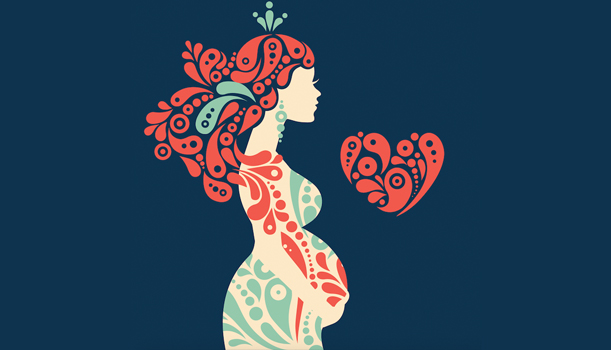
Ask Dr. Laura: The Fluidity Of Sexuality, And Tips For A Successful Open Relationship

By Laura McGuire
Dear Dr. Laura,
How fluid/permanent is sexuality? Is a person who comes out later in life more likely to be born LGBT and eventually realize it, or born straight and then change?
Dear Fluidly Friendly,
Thank you for reaching out! This can be a hard question to ask openly in LGBTQ spaces as many feel very protective and sensitive to the language and dialogue we have around being “born this way” or the “choice” in one’s life path. The tenderness around these issues is logical and founded, as most queer people have fought their whole lives to be seen as real and valid in a world that fiercely seeks to discredit them. And yet many within the community wonder this same question even of themselves.
The hardest person you will ever come out to is not your mom. It’s not your dad, or your priest, or even that crazy guy down the street who plasters all those hateful bumper stickers on his car. Nope, not at all. The hardest person you’ll ever come out to is…YOU. The biggest and hardest journey in the coming out process is really truly admitting who you are to yourself. After you do that, everyone else is ten times easier, no matter what their reaction is. This is why for so many people coming out is a slow and incremental process. The second part of this challenge is a lovely little thing called “compulsory heterosexuality.” This is the experience almost everyone alive today has faced of being forced into a heterosexual identity from literally birth because it is seen as the only “appropriate” or “right” option. LGBT people are constantly told they rub their sexuality in other people’s faces, but have you ever seen how people talk about the sexual preferences of kids? No? Well, that’s because of another horrible thing—heteronormativity. Heteronormativity is the idea that the only normal thing to be is cisgender and heterosexual, and we are all saturated with it all the time. When someone says, “He’s going to break all the girls’ hearts,” or people make a ringbearer and flower girl pose like a bride and groom, or a mom tells her daughter, “Dad is your first boyfriend,” do you ever stop to think, “Holy Christ on a cracker, why are you forcing all these kids to be straight?” If you never realized all of this until now, that is heteronormativity at work.
While you are going through the process of stopping to take the time to look within and discover what you are really feeling, what your genuine desires are, and where your heart lies, it is totally fine and healthy to try on different identities and labels until you find one that sits well within your soul. Additionally, one may sit well for a time, and as the layers of your truth peel away with experience, you discover that a new label speaks new clarity to you. In this way, one may identify as straight, or bi, or gay, etc.—and over time they come to use a new term to explain their unique experience. There is a lot of neurological, social, and psychological evidence that points to orientation and gender identity being present in us from birth, but the social constructs we exist in allow us to either discover that innate nature, rebuke it or hide from it. On top of that, the queer community can be very divisive and exclusionary within itself. That’s why our sexuality and gender identity can be so confusing and even upsetting to explore when it should be the complete opposite.
I hope you continue on your journey of self-discovery with a little more clarity and hope. Remember that this is your truth alone, no one can claim it for you but you, and no one else’s journey or identity is anyone’s but theirs. Feel empowered in the knowledge that you are not alone in your experience and that the process of self-revelation is a bumpy but worthwhile trip.
In Sex Positivity,
Dr. Laura
Dear Dr. Laura,
My partner and I are in a serious and committed relationship. We have been monogamous up until now but are discussing being in an open relationship. What should we do to explore this?
Dear Possibly Poly,
Congrats on exploring a new possibility in your relationship! That is always an exciting thing to do. Re-evaluating and analyzing what works for you both is something I strongly encourage all couples to do. The issue is that without a roadmap, things can get complicated and confusing quickly. Let’s sit down, grab some tea, and discuss what opening up your relationship could look like for you.
Open relationships can have many labels: monogamish, swinging, polyamorous, etc. What they all mean is that sex, love, or both will be open to more than just the two of you. This is completely different than cheating or infidelity. Unlike the latter, which is wrong and cruel, you will not be hiding this from each other, and all aspects will be agreed upon. You will need to be strong in your communication skills—and mature enough to say what does and does not work for you honestly and transparently.
When it comes to communication issues, I always advise couples to write down their thoughts first. Putting all the things that are swirling through your brain on paper can be a great tool for self-reflection and sharing. I encourage you to do this alone at first so that you don’t feel pressure to conform to what your partner is writing. Make a list of what you desire, what boundaries you need, and what your fears are. Do you want just flirting and sex to be open or are love and a relationship with other people OK, too? Do you want these things to be open to everyone you may meet, or only people you already both know? What STD and/or pregnancy prevention measures will you take? How often will you both get tested and what will you do if one of you has a positive result? These are just a very few of the many questions you will need to discuss. Be as specific as possible and sincere in your honesty. If you write down what you think the other person wants to hear, you are headed toward a potential disaster. You have to be true to yourself above all.
Now that you have your lists, sit down to discuss them. If your ideas turn out to be very different, having a friend—or sex therapist who specializes in open relationships—mediate the discussion might be your best option. When we are emotional about a topic, we often don’t hear what the other person is saying, only what we are projecting on them based on our own fears. As you explore different options and approaches to opening up your relationship, remember to continuously check in with each other about what is and isn’t working. The good news is that by doing all this work, you are strengthening your communication and interpersonal skills in new and profound ways, and that is a giant plus no matter what your relationship status.
In Sex Positivity,
Dr. Laura










